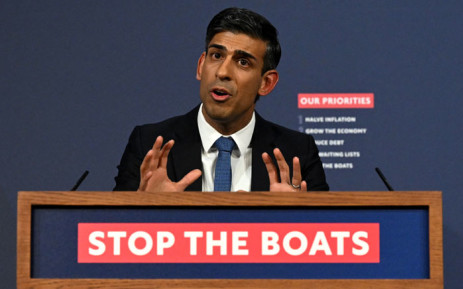LONDON (Parliament Politics Magazine) – Priti Patel defended proposals to deport undocumented asylum seekers to Rwanda on a one-way ticket, claiming that opponents of the plan had failed to present an alternative solution to the migrant crisis.
The plan, which was announced last week, was widely panned as inhumane, illegal, impossible, and outrageously expensive. Conservative MPs and peers, the UN’s refugee agency (UNHCR), and the archbishop of Canterbury have all spoken out against the policy, saying it “does not stand the judgement of God” in his Easter Sunday sermon.
Patel, the home secretary, retaliated against criticism in a joint article with Rwandan Foreign Minister Vincent Biruta in the New York Times. She described the relationship as “groundbreaking” and one that would set a new international norm, calling it the act of a “humanitarian nation.”
They were taking daring and imaginative actions, she said, and it was astonishing that those who criticised the plans didn’t provide their own ideas.
The plans, according to the home secretary, will help put an end to the “deadly trade” of human trafficking, as well as the existing very unjust system in which those with the wherewithal to pay people traffickers have an edge over vulnerable people who cannot.
The UK can create legal, safe, orderly, and controlled means for individuals to improve their lives, flee oppression, persecution, and violence, and take advantage of new opportunities, she said.
However, 150 British refugee-supporting organisations, including the Joint Council for the Welfare of Immigrants, Rainbow Migration, and Hope Not Hate, wrote to the PM, claiming that the plan would “cause immense suffering” and “result in more, not fewer, dangerous journeys – leaving more people at risk of being trafficked.”
The government has also been criticised for failing to create new safe and legal avenues into the UK for asylum seekers, despite earlier claiming that such channels would eliminate the need for people to risk their lives trying to enter the country.
Patel and Biruta both defended Rwanda against critics who highlight to the country’s terrible human rights record, claiming that captives have been tortured.
Support the compassionate and respectful treatment of refugees, promote human capital opportunities for migrants and the host community, and enable safe and legal avenues for individuals escaping persecution and insecurity, they stated.
Greg Hands, the energy minister, echoed Patel’s defence. He believes what others, the critics of that proposal, needed to do was explain what their solution would be, he said on Sky News when asked if the archbishop of Canterbury was incorrect to term the idea “ungodly.”
He also dismissed claims that the system would be impossible to implement, claiming that it would operate as a major deterrent to those attempting to cross the Channel in small boats.
He told Times Radio that they believed it would work and they were convinced that it would succeed. They needed to deliver that message then – that illegally crossing the Channel did not always result in a person being found in the UK.
So, the move to Rwanda was in place, they believed it would function as a big deterrent to individuals making that journey, and [it] would ultimately be at the expense of the people smugglers they wanted to put out of business.






